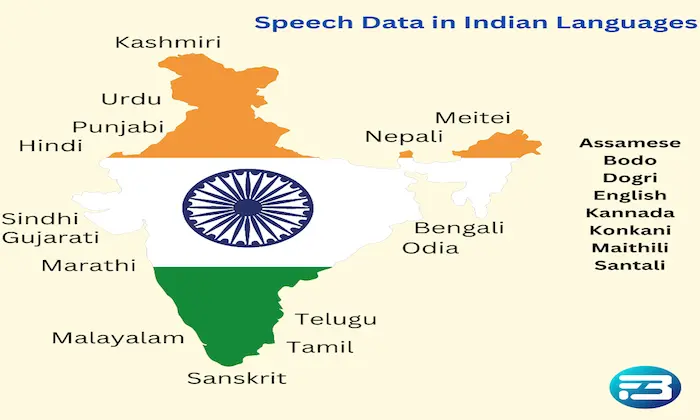What role does multilingual and global data coverage play when selecting an AI data partner?
Data Coverage
Global Markets
AI Solutions
In an increasingly interconnected world, selecting an AI data partner that offers comprehensive multilingual and global data coverage is crucial. It empowers organizations to build robust, inclusive, and effective AI systems. This choice significantly influences data quality, model performance, and user satisfaction.
Importance of Multilingual and Global Data Coverage
Multilingual data coverage involves datasets that include various languages, dialects, and accents, while global data coverage expands to include diverse cultural contexts and demographic representations. These features are essential for developing AI models capable of accurately understanding and responding in different linguistic and cultural environments.
1. Why Multilingual Data Matters: Models in natural language processing (NLP) and speech recognition rely on training data that mirrors real-world usage. Multilingual datasets expose models to varied linguistic structures, idioms, and contextual cues. For example, a voice assistant trained only on English may falter with regional accents or slang without diverse dialect exposure. By integrating multilingual datasets, organizations can create AI systems that not only understand multiple languages but also recognize cultural nuances, leading to interactions that feel more human. This ability is critical for applications in customer service, healthcare, and any field where communication is pivotal.
2. Benefits of Global Data Diversity: Global data diversity encompasses more than language; it includes variations in age, gender, socio-economic status, and regional specifics. Diverse datasets help alleviate biases that might stem from over-represented demographics.
For instance, a facial recognition model trained primarily on a single demographic may underperform. A global dataset that includes a variety of skin tones, facial features, and environmental backgrounds enhances the model's accuracy and fairness, making it effective across different populations.
How Data Coverage Influences AI Model Accuracy and User Experience
Choosing a data partner with extensive multilingual and global data coverage directly impacts model performance. Consider these key aspects:
- Accuracy and Robustness: Models developed with diverse datasets demonstrate greater accuracy and are more robust in real-world applications. They handle variations in language, tone, and context more effectively than those trained on homogenous datasets.
- User Experience: AI systems that respect cultural differences are more likely to be embraced by users. For example, a multilingual customer support chatbot capable of switching languages based on user preference demonstrates sensitivity to user needs, enhancing overall satisfaction.
- Regulatory Compliance: Diverse datasets help organizations adhere to evolving regulations that emphasize fairness and non-discrimination in AI applications, especially in sectors like finance and healthcare, where biases can have significant ethical and legal implications.
Navigating Trade-offs in Selecting AI Data Partners
While the advantages of multilingual and global data coverage are evident, organizations may face challenges in data partner selection:
- Cost vs. Quality: High-quality multilingual data might come at a premium. Balancing budget constraints with the need for diverse datasets that meet specific needs is essential.
- Data Management Complexity: Managing numerous datasets from various regions complicates data governance and quality assurance. It's crucial that partners have robust systems to manage these complexities.
- Evaluating Data Sources: Not all data sources are equal; understanding the provenance and reliability of datasets is vital. Organizations should seek partners who provide transparency about data collection methods and contributor diversity.
Common Missteps in Partner Selection
Experienced teams occasionally make mistakes when selecting an AI data partner:
- Neglecting Language Variance: Focusing only on major languages can lead to significant gaps. It's essential to consider regional dialects or minority languages that are vital for comprehensive AI training.
- Underestimating Cultural Context: Ignoring cultural differences can result in AI systems that are tone-deaf or inappropriate in certain contexts, leading to user dissatisfaction.
- Overlooking Ethical Considerations: Disregarding ethical data sourcing can lead to compliance issues and damage an organization’s reputation. Prioritizing partners with strong ethical frameworks is essential.
Strategic Partnerships for AI Success
In conclusion, multilingual and global data coverage are pivotal when selecting an AI data partner. Organizations prioritizing these factors can create more effective, accurate, and user-friendly AI systems. By understanding the implications of data diversity and potential trade-offs, teams can make informed decisions that enhance AI capabilities and align with ethical standards.
For organizations aiming to enhance their AI systems with comprehensive multilingual and global data coverage, FutureBeeAI stands as a reliable partner. With our sophisticated platform, diverse contributor network, and commitment to ethical data practices, we can help you achieve accuracy and inclusivity in AI models tailored to your specific needs.
Smart FAQs
Q. How can companies ensure the quality of multilingual datasets?
A. Companies should implement multi-layered quality assurance processes, including both automated checks and human reviews, to verify the accuracy and contextual relevance of multilingual datasets.
Q. What are some best practices for managing diverse datasets?
A. Best practices include establishing metadata standards, conducting regular audits for bias and representation, and employing robust data governance frameworks to ensure compliance and ethical sourcing.
What Else Do People Ask?
Related AI Articles
Browse Matching Datasets
Acquiring high-quality AI datasets has never been easier!!!
Get in touch with our AI data expert now!








